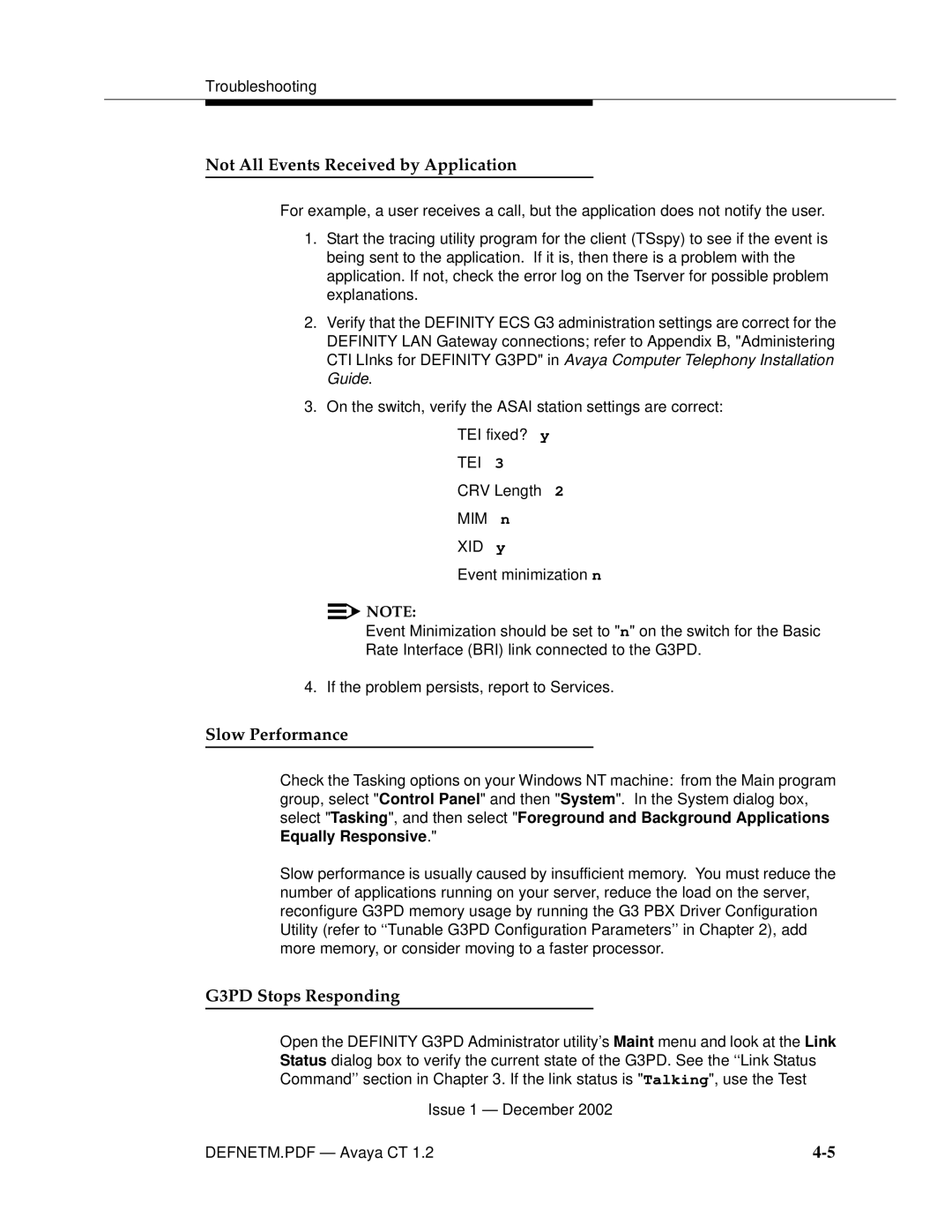
Troubleshooting
Not All Events Received by Application
For example, a user receives a call, but the application does not notify the user.
1.Start the tracing utility program for the client (TSspy) to see if the event is being sent to the application. If it is, then there is a problem with the application. If not, check the error log on the Tserver for possible problem explanations.
2.Verify that the DEFINITY ECS G3 administration settings are correct for the DEFINITY LAN Gateway connections; refer to Appendix B, "Administering CTI LInks for DEFINITY G3PD" in Avaya Computer Telephony Installation Guide.
3.On the switch, verify the ASAI station settings are correct:
TEI fixed? y
TEI 3
CRV Length 2
MIM n
XID y
Event minimization n
![]()
![]() NOTE:
NOTE:
Event Minimization should be set to "n" on the switch for the Basic
Rate Interface (BRI) link connected to the G3PD.
4. If the problem persists, report to Services.
Slow Performance
Check the Tasking options on your Windows NT machine: from the Main program group, select "Control Panel" and then "System". In the System dialog box, select "Tasking", and then select "Foreground and Background Applications Equally Responsive."
Slow performance is usually caused by insufficient memory. You must reduce the number of applications running on your server, reduce the load on the server, reconfigure G3PD memory usage by running the G3 PBX Driver Configuration Utility (refer to ‘‘Tunable G3PD Configuration Parameters’’ in Chapter 2), add more memory, or consider moving to a faster processor.
G3PD Stops Responding
Open the DEFINITY G3PD Administrator utility’s Maint menu and look at the Link Status dialog box to verify the current state of the G3PD. See the ‘‘Link Status Command’’ section in Chapter 3. If the link status is "Talking", use the Test
Issue 1 — December 2002
DEFNETM.PDF — Avaya CT 1.2 |
